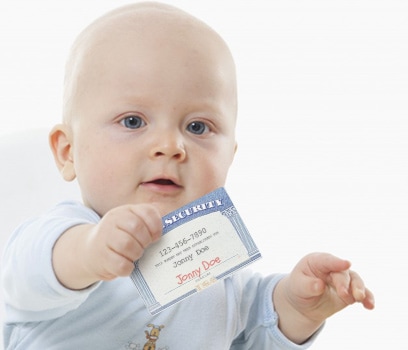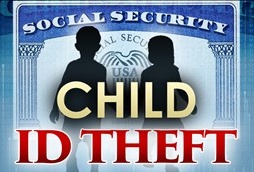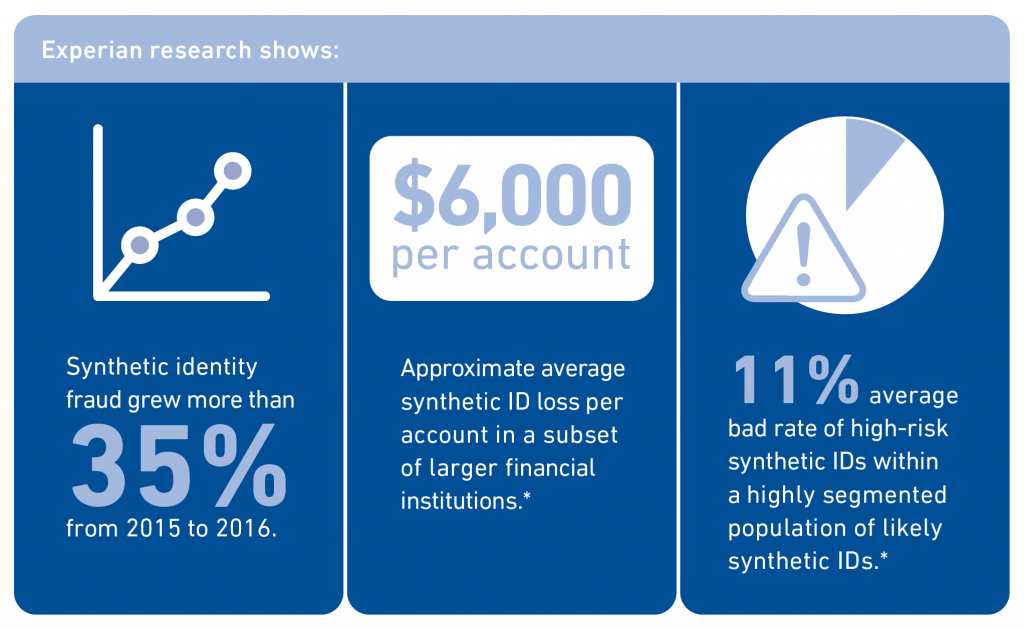Child Identity Theft Awareness Day – Five Ways to Protect Your Children
Child Identity Theft Awareness Day – Five Ways to Protect Your Children
By Ronald Mortensen / August 31, 2018 / Columnist at Utah Standard News
What if someone is using your three year old child’s Social Security number to get a job? What if your five year old has a home mortgage? What if your eight year old is denied Medicaid coverage because she earns too much money to qualify? What if your college student is denied Internet service because he has bad credit? Unfortunately, these are real life issues that parents have had to deal with.
 Just how much at risk are your children? Well, according to a survey cited by a major consumer credit reporting agency, Experian, over one million American children were the victims of identity theft in 2017. And an Experian survey found that in 86 percent of cases, the theft centered on a stolen Social Security number. In Utah, the Department of Workforce Services (DWS) sent letters to the parents of 20,000 children informing them that their kids’ identities may have been stolen. According to a Utah state senator that was just the tip of the iceberg.
Just how much at risk are your children? Well, according to a survey cited by a major consumer credit reporting agency, Experian, over one million American children were the victims of identity theft in 2017. And an Experian survey found that in 86 percent of cases, the theft centered on a stolen Social Security number. In Utah, the Department of Workforce Services (DWS) sent letters to the parents of 20,000 children informing them that their kids’ identities may have been stolen. According to a Utah state senator that was just the tip of the iceberg.
It is now estimated that 80,000 Utah kids are the victims of job-related, Social Security Number identity theft.
Who would steal a child’s identity? The thieves include dead-beat parents who are trying to avoid wage garnishments for child support payments, pedophiles so they can hide their true identities in order to get jobs that allow them to be close to children, and by individuals who cannot legally obtain Social Security numbers in order to work.
So, how can parents find out if someone is using their children’s identity and what can parents do to protect their children from identity theft? Here are five things that can be done immediately.
1 – Find Out if Someone Is Using Your Child’s Identity.
Experian and the Utah Department of Workforce Services provide means for parents to find out if identity thieves are using their child’s identity. Parents should take advantage of both methods. Here’s how:
Child identity theft is so prevalent and does so much damage to children that Experian designated September 1 as Child Identity Theft Awareness Day. (To share related content, including this article, use the hashtag #StopChildIDTheft.) According to a study cited by Experian, “In 2017, more than 1 million kids had their identities stolen, resulting in $2.6 billion in losses.”
Experian offers a service that allows parents to find out if their young children are the victims of identity theft. It is a free, one-time service that will check to see if a child’s social security number is associated with an Experian credit file. If so, the company’s fraud resolution team will work with parents on next steps to help protect the child. Click here to access this service.
Utah Workforce Services.
You can submit a request to Workforce Services to find out if wages paid in Utah are being attributed to your children’s Social Security numbers or if their Social Security numbers are being used to obtain government benefits.
The most secure way to request the information is to go to this website. Once there, click on “State Agencies” then scroll down to Department of Workforce Services and click on “Request Records.” You will then have to create an account. Once into the site, fill out the form. If you need assistance you can call 801-526-9603 or e-mail protectfamilies@gmail.com.
Here is some help in completing the form:
 Title (enter the following): Are Wages being attributed to my children’s Social Security numbers?
Title (enter the following): Are Wages being attributed to my children’s Social Security numbers?
Description of the records (enter the following): Please advise me by e-mail (Enter your E-mail address here) if wages are being attributed to the Social Security numbers of my minor children or if these Social Security numbers are being used for any other purposes that you may identify. The names of my children and their Social Security numbers are listed below. I certify that I am the parent/legal guardian of these children. I understand that there is no fee for this service.
Name of Child 1 plus full Social Security number
Names of additional children plus full Social Security Numbers
Check the Box: “I am the authorized record of the subject of the record.”
Check the Box: “View or inspect records only.”
Workforce Services will respond and, if any of the kids’ numbers are being used, they will tell you how to file a police report.
 2 – Protect Your Child’s Credit.
2 – Protect Your Child’s Credit.
You can enroll your child’s information with TransUnion through the Utah Attorney General’s Child Protection Program (CIP). Upon receipt of an enrolled child’s information via CIP, TransUnion will take certain proprietary fraud prevention steps, including but not limited to the entry of portions of that information into its High Risk Fraud database. Such information will remain in the High Risk Fraud database until the child’s 17th birthday, at which time it will be removed. Individuals older than 17 years of age seeking protection against identity theft should add a security freeze to their credit files by contacting the three national credit reporting companies: Equifax — 800-349-9960, Experian —888‑397‑3742, TransUnion — 888-909-8872. There is no cost to freeze or unfreeze your credit as often as needed.
3 – Support businesses that use E-Verify in order to protect your children and yourself from ID theft.
E-Verify is an awesome child identity theft prevention program. It stops virtually all employment-related, child identity theft perpetrated by dead-beat parents who are trying to avoid wage garnishments for child support payments, pedophiles so they can get jobs close to children, and by individuals who cannot legally obtain a Social Security number in order to work. E-Verify does this by requiring that the name, Social Security Number and date of birth all match. Since an adult cannot use a child’s birth date, a child’s Social Security Number is of no use to them and if someone is unlawfully using another adult’s Social Security Number with their own name, E-Verify will reject that as well.
Unfortunately, many employers don’t use E-Verify to protect children so you should always ask a business if they are protecting children from identity theft by using E-Verify. If not, take your business to an entity that does use E-Verify.
You can find the employers who are protecting our children by clicking here. If someone you do business with does not use E-Verify, ask them to do so—for the sake of our children.
4 – Stop the State of Utah from Selling Teenagers’ Personal identifying Information by Making Voter Records Private.
The State of Utah sells every registered voters’, including teenagers’, personal information (name, address, phone number) along with their party affiliation, voting history, etc. unless they make their voter records private. Once this information is sold, it is posted to voterrecords.com on the internet, given to political parties and candidates, put on the iPhones of campaign volunteers and is available for anyone, anywhere in the world to use to track individuals down. In fact, political parties, candidates and certain businesses are even given the voters’ full birth dates.
The state automatically updates the address on a voter record whenever a person updates the address on their driver’s license and then sells the person’s new address. This puts individuals who need to keep their addresses private, such as victims of domestic violence, stalking, those in the military who are threatened by terrorists, etc. at risk.
In order to stop the state from selling the voter information, follow the instructions provided in an earlier column. It walks you through the process of protecting a Utah voter registration record and removing a voter’s personal information from voterrecords.com.
5 – Support Senator Hatch’s and Senator Wyden’s Taxpayer First Act (S. 3246).
This bill requires the IRS to help prevent identity theft, including child identity theft, rather than facilitating it as is now the case.
Utah Standard News depends on the support of readers like you.
Good Journalism requires time, expertise, passion and money. We know you appreciate the coverage here. Please help us to continue as an alternative news website by becoming a subscriber or making a donation. To learn more about our subscription options or make a donation, click here.
To Advertise on UtahStandardNews.com, please contact us at: ed@utahstandardnews.com.





Comments - No Responses to “Child Identity Theft Awareness Day – Five Ways to Protect Your Children”
Sure is empty down here...